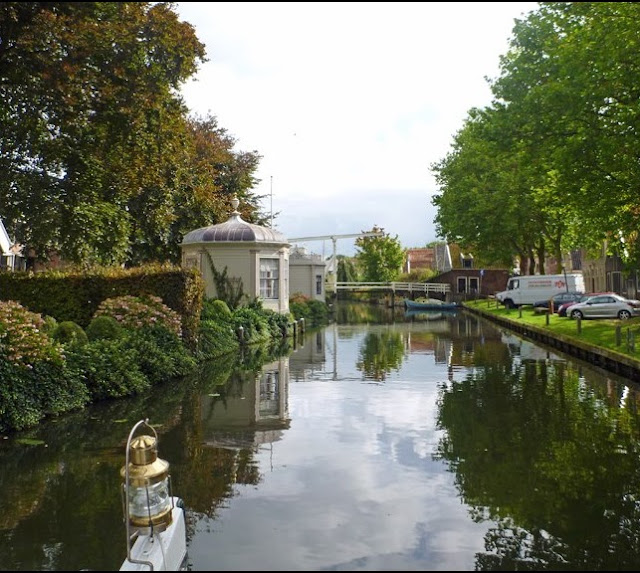The small country with mostly marshland embraced the locks system that originated in China. They had systems of diking and building Terps, which is a small mound in the marshlands. Making several of these mounds, they connected them with dikes and started filling the centre with rocks and sand creating a small island in the marsh. On the high point, you can find the local church.
Along the coastline of the old Zuider Zee were small villages and in the Northern part of Friesland mainly marsh and small lakes. These remote areas were only accessible by boat.

In the distance, we could see the Kwakelbrug and had to make arrangement for the Havenmeester, to manually open the bridge for us.

He then jumped on his bike and passed us to open the bridge ahead of us.

It was like stepping back in time and being welcomed into the heart of Edam. Zonder Zorg peacefully glided the waters as if she has been here before.

We passed by the shipyard which is now in the business of restoring historical boats also in the background is the old house where my grandfather was born.

We continued on the old canal and the Havermeester passed us one more time on his bike to raise the next bridge

Zonder Zorg said good-bye to Edam as we entered the old Zuider Zee, which is now the IJsselmeer.






No comments:
Post a Comment